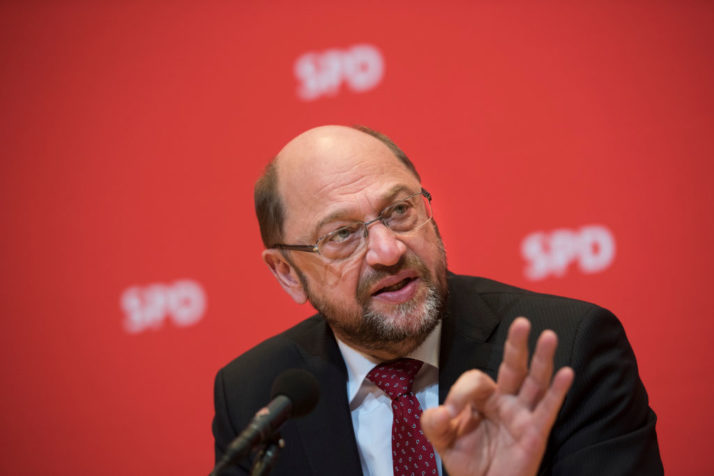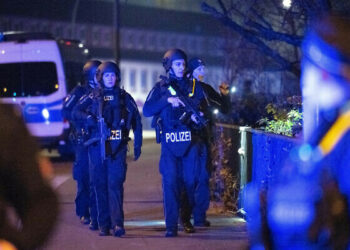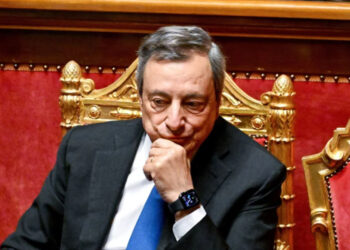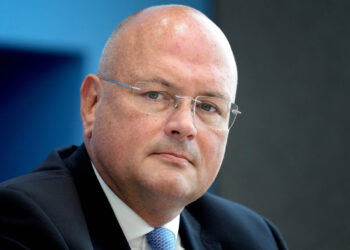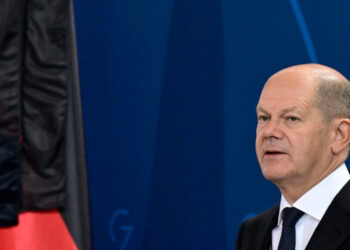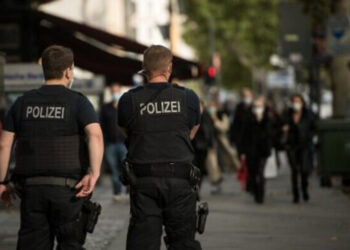In their televised debate on September 3, German Chancellor Angela Merkel and her Social Democratic challenger, Martin Schulz, found more agreement than discord. Both advocated a more international approach to Europe’s migration crisis, both raised serious doubts about Turkey’s potential accession to the European Union, both opposed raising the retirement age to 70 and in fact both admitted to skipping church the Sunday morning of the debate, but claimed they had spent time in quiet prayer on Saturday.
Despite these similarities, the candidates are expected to fare quite differently at the upcoming elections in less than two weeks now. Ms. Merkel is very close to a sure victory. Her Christian Democrats (CDU/CSU) are the strongest party by far, polling at just under 37% compared to Mr. Schulz’s second place Social Democrats (SPD), coming in with somewhat less than 25%.
The most intriguing question surrounding the election is which party or parties will end up in coalition with Ms. Merkel. A continued version of the current ‘Grand Coalition’ between the two major parties is by far the most likely result and much of politics as usual can be expected to continue. The only real excitement comes from the question of which small parties will cross the 5% hurdle to make it into the federal parliament and in particular how well the populist radical right party, the Alternative for Germany (AfD), will perform and whether the Free Democrats (FPD) will manage to return to the Bundestag.
Of greater concern for the long-term health of German democracy, however, is the decline of SPD and the fragmentation of the left. For the vast majority of the post-war era, Germany functioned well with two major parties and one (or more recently two) smaller parties. This arrangement allowed for coherent coalition building, clear choices for voters, and multiple perspectives in politics. Because the Social Democrats were strong enough to be a real threat, their concerns were heard and often taken seriously even when they were in the opposition.
This situation appears to have changed and the change may be permanent. Since unification –- 27 years ago –- the left side of the German political spectrum has been occupied not just by the Social Democrats and the Greens, but also a third party, most recently called The Linke (the Left). The Linke is home to former Communists, voters particularly concerned with issues related to the eastern Lander, and a splinter group from SPD that rejected that party’s turn toward the center. Not surprisingly, the emergence of a second minor party on the left has made winning votes more difficult for the left wing’s major party.
The SPD faces an unfortunate dilemma. The party that had reconciled to the existence of the Green party and the national Red-Green coalition, in office from 1998-2005, was fairly successful, for example, introducing a path to naturalized citizenship and initiating an end to German nuclear power, two policies that will have a long-term impact on German society.
The splintering of the party – Oskar Lafontaine’s defection and eventual fusion with the former Communist PDS to form the Left Party – is proving harder to manage. The presence of the former Communists and the Social Democratic defectors make cooperation with the Left difficult for the SPD to swallow. German public opinion is not swayed much in terms of voters switching from left to right, but voters do change allegiances among the various left parties.
The left-wing vote pie is therefore now divided by three instead of by two, making the vote totals for the SPD unavoidably lower. Some sort of increased cooperation on the left is the only way out of this dilemma, but that seems unlikely. The Green party is institutionally too strong, the divide with the Left party still too fresh and likely too deep to be overcome. These developments mean the SPD may well find itself in a more or less permanent position of being lucky to top 25% in national elections.
The problem is that 25% is not really a credible threat to taking over the government. Ms. Merkel is an adept and clever politician. She has already defeated three successive Social Democratic Chancellor candidates and she is poised to defeat a fourth. But the problem is not really that the SPD is failing to find reasonable candidates. The Christian Democrats are not being seriously challenged at the polls because of the inexorable decay of SPD and the fragmentation of the left. Comparisons to countries such as Japan and Italy teach us that over the long haul, this sort of political imbalance can lead to inaction on a wide range of political issues.
Eventually, Germany will not have Chancellor Merkel to rely on. If it no longer has a Social Democratic party, though, that will be a bigger loss. Our attention this electoral cycle is focused on the successes on the political right – Ms. Merkel’s likely continuation of office, the FPD’s potential re-entry into the Bundestag, and of course, the rise of the AfD. But the continued fragmentation of the political left in Germany is at least as concerning, if not more so, than the success of the parties on the right. Democracy does not require a two-party system, but it does require a strong opposition of some sort.
Disclaimer: The views and opinions expressed here are those of the author and do not necessarily reflect the editorial position of The Globe Post.

